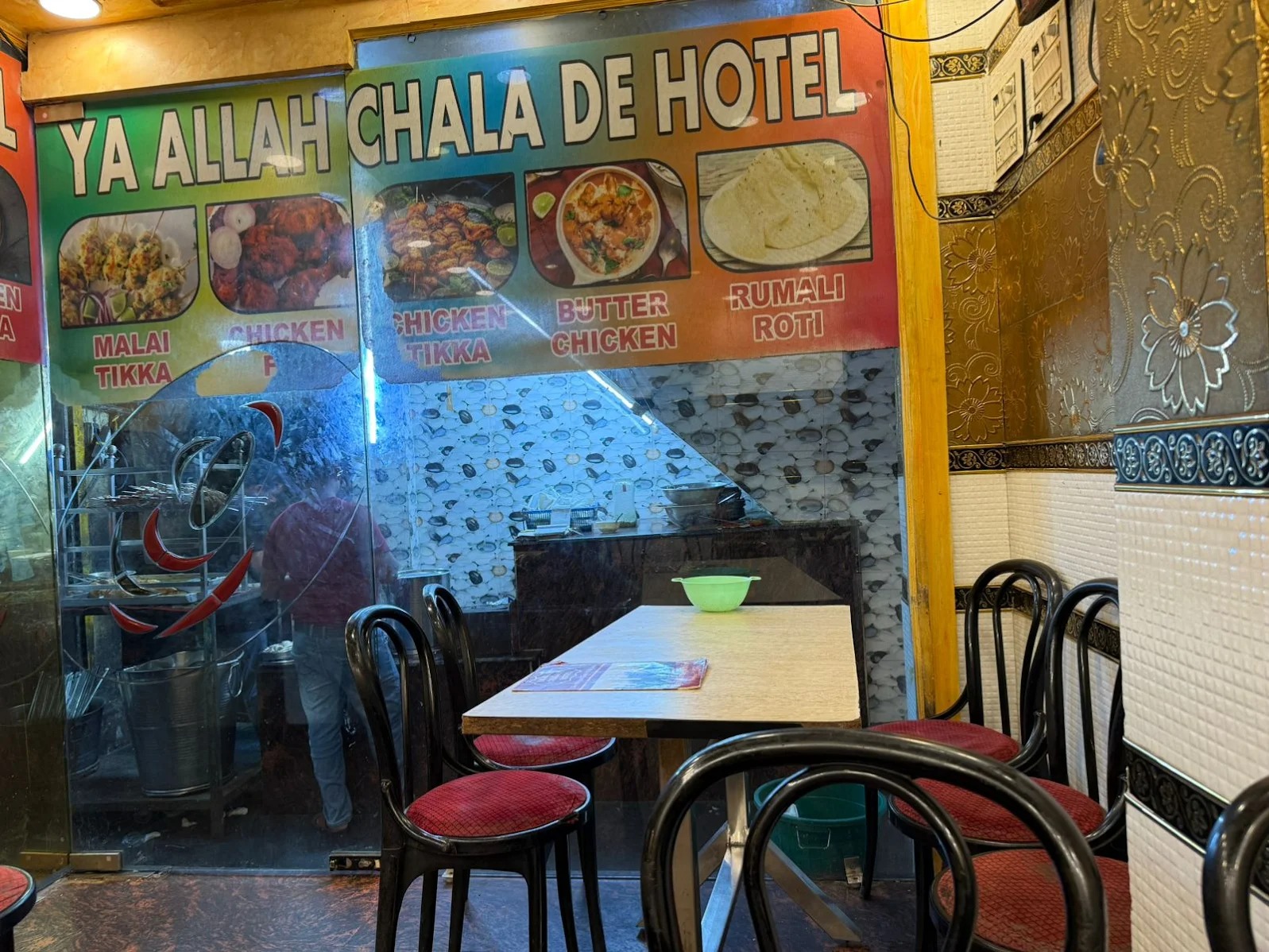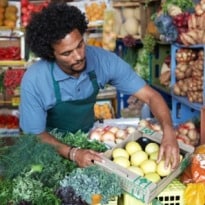The last explanation is pleasing to my ears, but I also think it happens to be right. My strong hunch is that, while Tesco is the first to feel the effect of this shift, it won't be the last. Our relationship with supermarkets really is undergoing a sea change, the sort of thing we haven't seen since Fine Fare disappeared and the vast out-of-town stores began appearing on our ring roads like JG Ballard stories brought sickeningly to life. This isn't about data. I have no facts and figures. I can just feel it, and I bet you can, too. You know it from your own experience. You see it whenever you walk out of the door. At the top end of the market, people who can afford to care about food are choosing, where possible, to use their local butchers and bakers. At the bottom end, consumers are beginning to see through the old lie that supermarkets are always cheaper (my greengrocer beats the prices at Sainsbury's every time, which is why there's always a queue).
You'll tell me my village - I live in north London - isn't representative of anything, that we are a law unto ourselves, an island of pretension and wealth. To a degree, you would be right. But London is often a bellwether. The area where I live, moreover, is dramatically mixed, bankers shoving up next to council tenants. All I can tell you is that the landscape, shop-wise, is changing before our very eyes. Lately, it's like Chigley, only with vastly more litter, pollution and personal trainers. It started when the greengrocer doubled in size, the better to accommodate the tomato-guzzling hordes. At that time, we were blessed with one posh cheese shop, three traditional butchers and one fishmonger. Now, there are two posh cheese shops, a new butcher (and one of the old ones has been revamped) and three new fishmongers. Oh yes, and the ritzy French bakery has opened a second branch.
In my street, the light thunk of plastic boxes as they're unloaded from the supermarket delivery vans is now as familiar, if not quite so uplifting, as the sound of my beloved's key in the door. Those who use the internet for grocery shopping do it for reasons of convenience, certainly. But we also know we spend less online, buying only what we need, choosing necessities with a ruthlessness that often abandoned us in-store. What we used to spend on impulse buys - or some of it - then goes on a decent wedge of Lincolnshire Poacher, a couple of fillets of haddock or some good beef, sold to us by smiling, helpful, talkative people whose names we may know, and whose businesses matter both to them and us.
The people who run our supermarkets, obsessed as they are with "price matching" and "meal deals", seem not to have noticed this. Or perhaps they have merely accepted there is no real way to respond to it. Small, local supermarkets are good and useful should you run out of stock cubes or Persil of a Tuesday evening. But even their expansion is finite. For the rest, there is no short-term solution. We have become suspicious: of their mawkish advertising, of their treatment of farmers, of their desperate bids to package up things that really don't need packaging up at all (I mean this literally and metaphorically, versions of "restaurant-style" dishes being every bit as phoney and wasteful as apples wrapped in too much plastic). Modern life, we feel, is isolating enough without self-service check-outs. They want to own us, but we aren't having it. Suddenly, the over-lit aisles of Tesco have never looked more bleak. Or more empty.
Top Photo: 'My grocer beats the prices at Sainsbury's every time, which is why there's a queue.' Photograph: Alistair Berg/Getty Images









